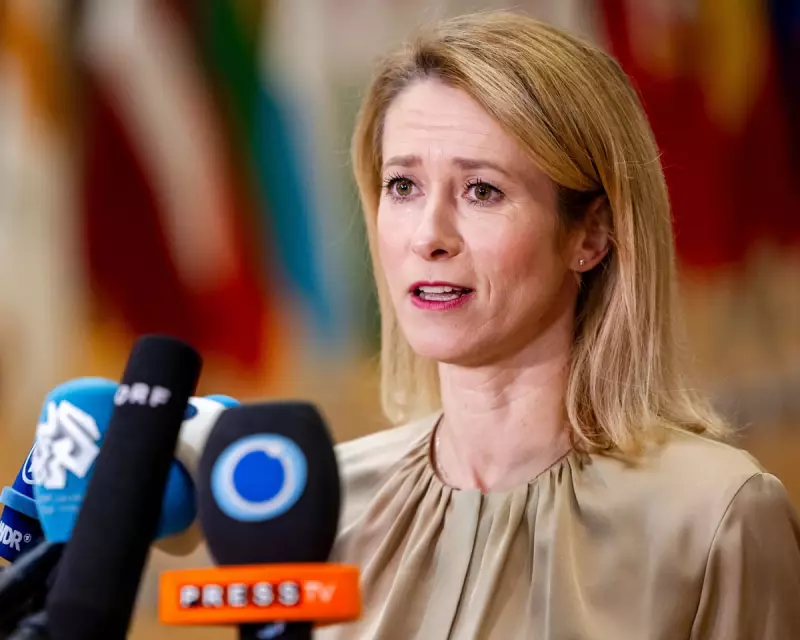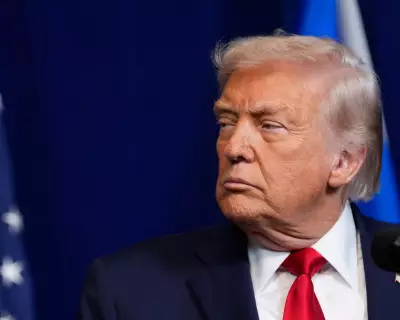
European Leaders Insist on Ukraine Peace Process Involvement
Senior European diplomats have issued a forceful demand for inclusion in any peace negotiations to end the war in Ukraine, following concerning reports about a draft US-Russian agreement that appears to favour Kremlin interests. The European Union's foreign policy chief, Kaja Kallas, stated that while all meaningful peace efforts are welcome, any workable solution must have Ukrainian and European approval.
No Concessions from Moscow
Kallas delivered a blunt assessment of Russia's position, telling reporters that Vladimir Putin could end the conflict immediately by stopping attacks on civilians. She emphasised that "we haven't seen any concessions on the Russian side" and stressed that any peace agreement must be both just and lasting, requiring consensus from Ukraine and European nations.
The German foreign minister, Johann Wadephul, echoed this position, asserting that "all negotiations about a ceasefire, regarding the further peaceful development of Ukraine, can only be discussed and negotiated with Ukraine" and that Europe must be included in the process.
Controversial Peace Plan Details Emerge
The diplomatic statements came in response to media reports revealing a draft US-Russian peace plan that would compel Ukraine to surrender territory and grant Russia unprecedented control over its political and military sovereignty. This framework has raised alarm across European capitals.
France's foreign minister, Jean-Noël Barrot, clarified that peace cannot mean capitulation for Ukraine. He outlined that genuine peace should begin with a ceasefire along the current contact line, enabling subsequent discussions about territories and security guarantees. Barrot directly accused Russia and Vladimir Putin of being "an obstacle to peace" given current circumstances.
Poland's foreign minister, Radek Sikorski, emphasised Europe's crucial stake in the outcome, noting that "Europe is the main player, the main supporter of Ukraine, and it is, of course, Europe's security that's at stake." He added that restrictions should target the aggressor's military capabilities rather than the victim's right to self-defence.
Frozen Assets Battle Intensifies
The diplomatic discussions unfolded alongside significant developments regarding Russia's frozen assets. Russia's parliament, the Duma, voted unanimously to authorise legal action against Belgium and Euroclear if the EU proceeds with plans to use frozen Russian assets to support Ukraine.
The EU proposal aims to generate approximately €140 billion (£123 billion) through a reparations loan for Ukraine, using Russian sovereign wealth frozen at Euroclear, the Brussels-based securities depository that holds about two-thirds of Russia's sovereign wealth in Western institutions.
The Duma's resolution declared that "any infringement of Russian assets must draw an appropriate legal response", specifically targeting Euroclear and Belgium with potential property seizure claims. This complicates the EU's position, particularly as Belgium has expressed concerns about legal risks should Russia challenge the asset use.
European Commission President Ursula von der Leyen had previously warned EU leaders about Ukraine facing a €136 billion shortfall in 2026-27 for defence and essential government functions, highlighting the urgency of finding sustainable funding solutions.
Meanwhile, Hungary's foreign minister, Péter Szijjártó, voiced opposition to EU support for Ukraine, employing inflammatory language about "a corrupt Ukrainian war mafia" that reflects Budapest's consistent resistance to European unity on Ukraine policy.
The combined developments underscore the complex diplomatic landscape facing European leaders as they prepare for crucial discussions about Ukraine's future at next month's EU summit.





